In all circumstances, from the fires of war to the cause of peace building, Vietnamese revolutionary education has always been at the forefront, creating human resources, nurturing talents, and making an important contribution to the victory of the cause of national liberation, national reunification, innovation and international integration.
Resolution No. 71-NQ/TW on breakthroughs in education and training development signed by General Secretary To Lam on behalf of the Politburo on August 22, 2025, continues to affirm and elevate that consistent viewpoint. Education and training are not only the top national policy but also the key driving force that determines the future of the nation, the key to realizing the aspiration of a strong Vietnam.
On this occasion, VNA reporters produced a series of special articles: Resolution 71-NQ/TW: Paving the way for the aspiration of a strong Vietnam.
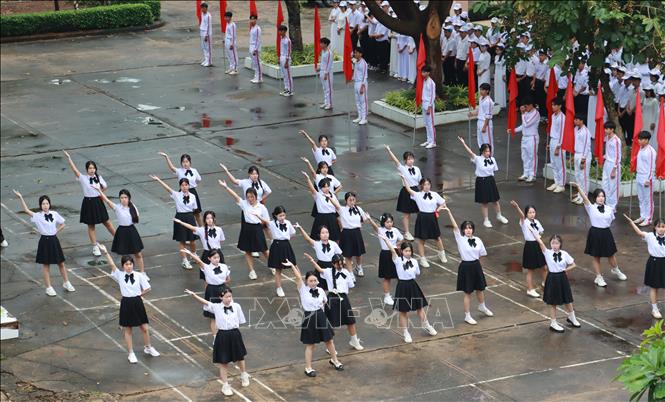
Lesson 1: Education - National policy determines the future of the nation
The success of the August Revolution in 1945 was not only a brilliant milestone opening an era of independence for the nation but also marked a major turning point in Vietnamese education.
Immediately after the founding of the Democratic Republic of Vietnam, amidst numerous difficulties, internal and external enemies, the Communist Party of Vietnam, headed by President Ho Chi Minh, considered the illiteracy of over 90% of the population as an enemy. The movement to "eliminate illiteracy" initiated by him was responded to by the entire population, becoming a widespread movement, leaving its mark until today. With the consistent viewpoint of the Party and State: education is the national policy that determines the future of the nation, from that historic Autumn to the development journey in the new era, the spirit of valuing education has always been maintained and promoted.
Investing resources to create breakthroughs
After September 2, 1945, the young independence faced “famine, ignorance, and foreign invaders”. In that context, President Ho Chi Minh launched the “Literacy Week” (1945-1946), considering illiteracy eradication an urgent task, a breakthrough to defeat the two remaining enemies. Under the flickering light of oil lamps, blackboards, and white chalk, people regardless of class, age, or religion attentively studied, bent their backs to practice writing in “popular education” classes, day and night contributing to the torch of knowledge of the nation. From this movement, there were more than 75,000 popular education classes, with millions of people escaping illiteracy – an unprecedented achievement in history.
Since then, over 80 years with many different historical periods, the Education and Training sector has undergone 3 major educational reforms, 2 profound and revolutionary innovations to develop in the direction of both inheriting tradition and integrating internationally, creating Vietnam's own identity and values.
In particular, in the context of profound changes in the world, digital technology and artificial intelligence are reshaping global education, on August 22, 2025, the Politburo issued Resolution 71-NQ/TW on breakthroughs in education and training development, which clearly stated: Education and training is the top national policy, deciding the future of the nation.
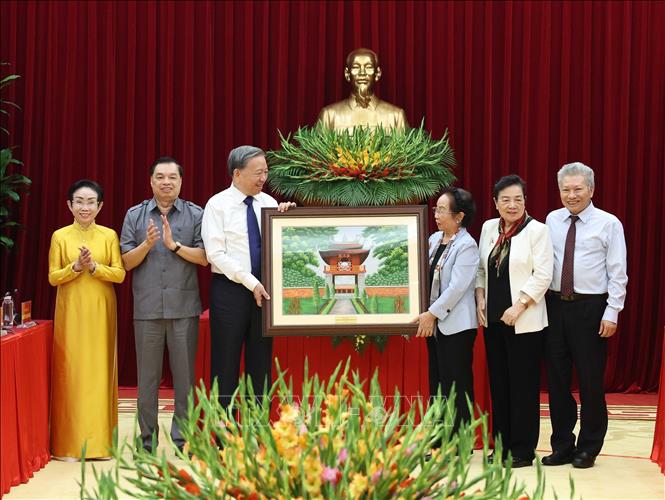
At the online conference to implement 4 important resolutions of the Politburo held on the morning of September 16, Resolution 71-NQ/TW was once again emphasized by General Secretary To Lam as a breakthrough strategy in the new era of our country. General Secretary To Lam affirmed: Investing in education is investing, cultivating, and enhancing "national spirit", is investing in the future of the nation. This is the key of all key areas, the fundamental driving force to increase productivity, break through national competitiveness, and nurture the desire for development. Education and training follow the motto: "Taking quality as the axis - taking teachers as the key - taking technology as the lever".
The head of the education sector, Minister of Education and Training Nguyen Kim Son, said: Resolution 71 has been issued to place education and training development in the mindset of national governance and social governance, making the goals and tasks of education and training development the focus of strategies, planning, policies, programs, and plans for development of all sectors of the country. The resolution sets a big goal: by 2045, Vietnam will have a modern, equitable, and high-quality national education system, ranked among the top 20 countries in the world. This is a special, unprecedented opportunity for the education sector, a great mission, responsibility, and honor for the sector. Resolution 71 has the meaning of opening and guiding the new revolution in education.
To realize this goal, Resolution 71 requires strong institutional innovation, creating special mechanisms and policies, and superior investment resources for education and training development. The Resolution clearly states that at least 20% of the state budget must be allocated to education and training, of which at least 5% is for investment expenditure and 3% is for higher education. This is a strong commitment, creating a solid financial foundation for education development, while opening up a mechanism for the whole society to take care of the cause of "growing people".
From a management perspective, Associate Professor, Dr. Hoang Minh Son, Director of Hanoi National University, analyzed that the requirement to spend at least 20% of the state budget on education has existed since Resolution 29-NQ/TW and was institutionalized in the 2019 Education Law, but in reality, it has not been achieved for many years. Resolution 71 once again reaffirms the correctness of this policy, while adding a regulation that investment spending must reach at least 5% of total budget spending and spending on higher education must be at least 3%.
In the coming period, investment in preschool and general education will be prioritized for solidifying schools, focusing on practice classrooms, STEM/STEAM experiences, play spaces, physical training environments; building a network of boarding schools in ethnic minority, disadvantaged and border areas.
Regarding vocational education and higher education, the Resolution also clearly stated "allocating the state budget to higher education institutions and vocational education institutions based on mission, quality and efficiency according to a unified mechanism throughout the sector; prioritizing ordering and assigning tasks to key sectors and fields according to output results".
In addition, the State's mechanisms and policies focus on creating motivation and space for education investors and other organizations and individuals to participate in education development.
Commenting on the superiority of this policy, Professor, Doctor of Science Nguyen Dinh Duc, former Chairman of the Board of the University of Technology - Vietnam National University, Hanoi, said: "Only with reality can we uphold morality. Increasing investment and ensuring total budget expenditure for education and for the teaching staff not only demonstrates the practical concern of the Party, but is also a specific solution to contribute to achieving the set goals. This adequate investment will modernize schools, so that all schools can "graduate from school to school, class to class"; at the same time, have modern equipment to improve training quality, link training with research, innovation and businesses better and faster. Improved life and income will help teachers feel secure in their work, wholeheartedly devote themselves to the cause of cultivating people, increasing the attractiveness of the teaching profession to society. This is a direct lever contributing to improving the quality of higher education, accelerating the speed of international integration of the Vietnamese education system".
Launching a series of new policies

Along with the issuance of Resolution 71, a series of investment policies for education have begun to be implemented from the 2025-2026 school year, imbued with the humanity of a nation that takes education as the foundation for development so that "no one is left behind".
On July 27, Dien Bien province started construction of Si Pa Phin Primary and Secondary School. This is the first project to be implemented under the new policy of the Politburo on investing in the construction of 248 primary and secondary boarding schools in land border communes. The groundbreaking ceremony of this school also opened a campaign to build 100 inter-level boarding schools in 100 land border communes, officially launched with a deadline of only 13 months, to be completed by August 30, 2026 at the latest.
Along with schools, the Party and the State continue to care for the "full meals" in class for students. Notice No. 177-TB/VPTW dated April 25, 2025 of the Central Party Office. The conclusion of General Secretary To Lam at the working session with representatives of the Government Party Committee and central ministries, departments and branches on the implementation of the Central resolutions on education and training clearly stated the unification of the State's policy of supporting lunch for primary and secondary school students in border communes, with priority given to mountainous border communes (including ethnic minority students and Kinh students living in border communes). Right in the capital Hanoi, from this school year, about 768,000 primary school students in Hanoi, including public and private schools, will be supported with 20,000 - 30,000 VND for lunch every day.
Along with investing in facilities, supporting learning and accommodation conditions for students, the policy of preferential treatment for teachers is also focused on research and implementation. At the opening ceremony of the 2025-2026 school year, General Secretary To Lam emphasized: Teachers are the soul of education, the decisive factor in the success or failure of innovation; they are the ones who sow aspirations, nurture personality, and light up faith in students.
Therefore, taking care of building a team of teachers and educational administrators is also one of the top priorities. Resolution 71 has introduced many breakthrough policies for the team of teachers and school staff; including increasing the preferential allowance for preschool and general education institutions to at least 70% for teachers; at least 30% for staff; 100% for teachers in particularly difficult areas, border areas, islands, and ethnic minority areas. When this policy is implemented, it will be a great source of motivation to help improve the income of school staff, keeping them committed to the profession.

Sharing about the policy directly related to her profession, Ms. Hua Thi Nhung, a teacher at Ban Lu school, Tan Son Primary and Secondary School (Tan Ky commune, Thai Nguyen province) expressed her joy and said that Resolution 71 is a clear demonstration of the Party and State's attention to teachers, especially in remote areas. The improved preferential policies will help teachers feel secure in their work, stabilize their lives and continue to stick with the profession for a long time.
Not only supporting teachers, Resolution 71 also sets out policies to mobilize talented people outside the teaching force to participate in teaching, implement a system of joint teaching staff at educational institutions and encourage experts to preside over scientific research in schools. These mechanisms are expected to contribute to narrowing the gap between education in advantaged and disadvantaged areas.
With Resolution 71 and specific policies that have been and are being rapidly implemented, a new revolution in education is unfolding: a revolution in breakthrough development in education and training. On the solid foundation that has been built over the past 80 years, each brick of knowledge continues to be nurtured for young shoots to the general education levels. From there, a solid launching pad is formed for the young generation of Vietnam to rise up to master the country, master the era of knowledge, intelligence and humanity.
Lesson 2: Creating a solid foundation for general education
Source: https://baotintuc.vn/giao-duc/nghi-quyet-71nqtw-mo-duong-cho-khat-vong-viet-nam-hung-cuong-bai-1-20250917100852974.htm


![[Photo] Prime Minister Pham Minh Chinh chairs the first meeting of the Central Steering Committee on housing policy and real estate market](https://vphoto.vietnam.vn/thumb/1200x675/vietnam/resource/IMAGE/2025/9/22/c0f42b88c6284975b4bcfcf5b17656e7)







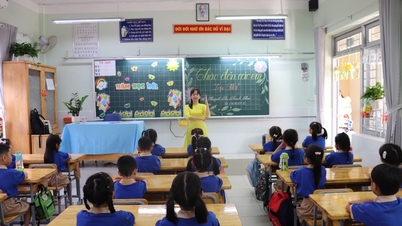




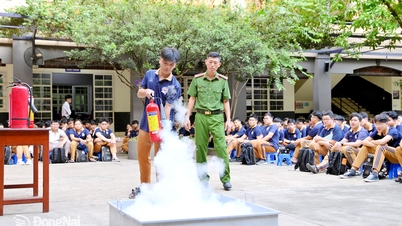





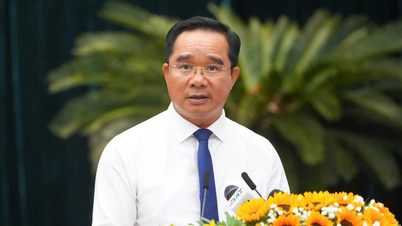

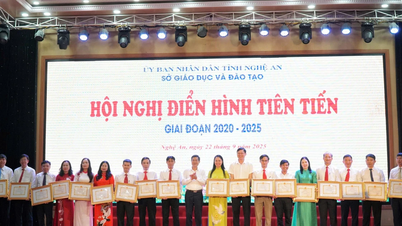

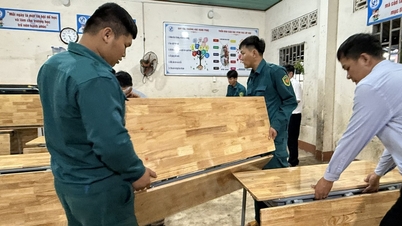







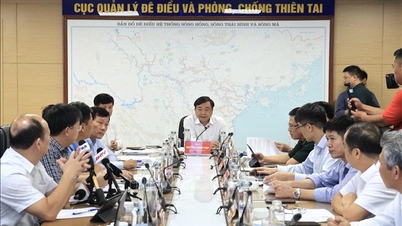
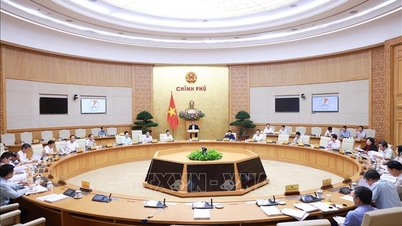
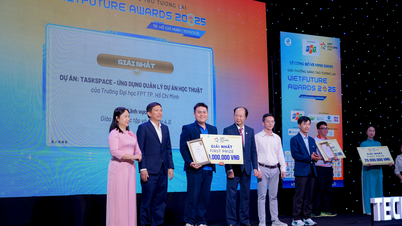
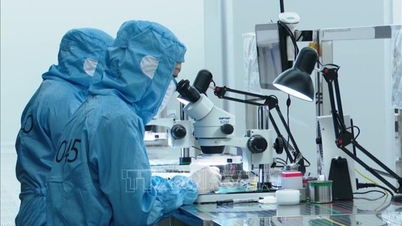
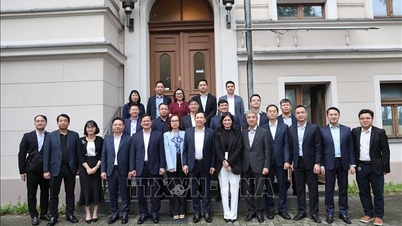
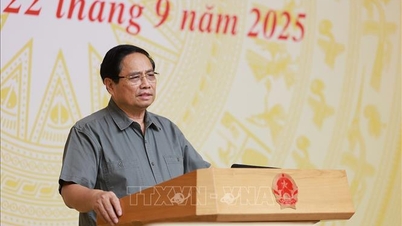
![[Photo] General Secretary To Lam presents the First Class Labor Medal to the Vietnam National Energy and Industry Group](https://vphoto.vietnam.vn/thumb/1200x675/vietnam/resource/IMAGE/2025/9/21/0ad2d50e1c274a55a3736500c5f262e5)




























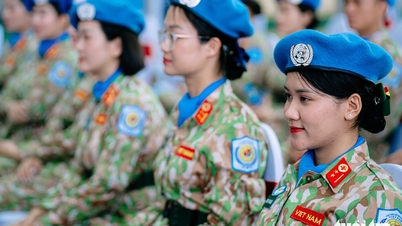








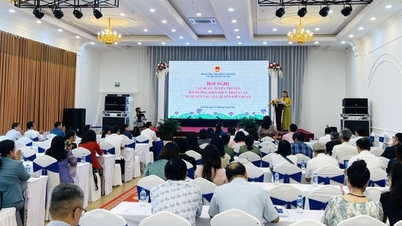


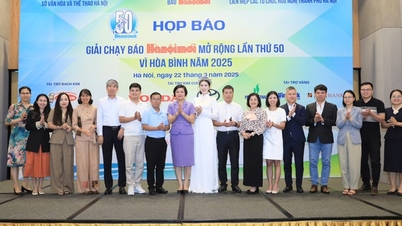
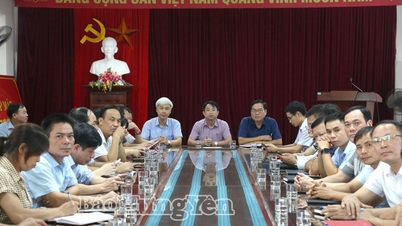









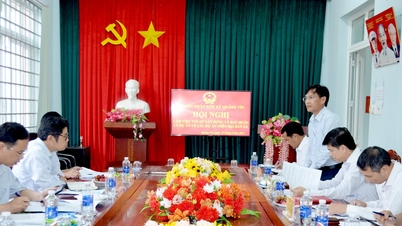














Comment (0)